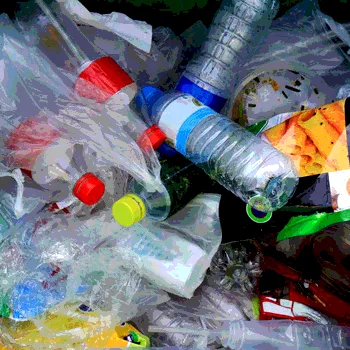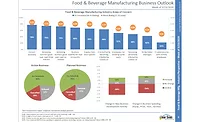Food, Beverage, and Supplements Litigation: Staying Out of the Crosshairs

Throughout 2019, food, beverage, and dietary supplement manufacturers have continued to find themselves in the crosshairs for class action lawsuits. From perennially risky labeling claims like “natural” to country of origin, “healthy,” nutrient content, and “green” claims, and to the alleged presence of glyphosate and microplastics, an incredibly broad array of products and claims have attracted consumer litigation.
Understanding the nature of these claims, and continually evaluating your company’s products and claim substantiation, are essential to reducing your company’s risk of becoming a target of class action litigation.
False Labeling Claims
The riskiest claims are the ones made on the front of product labels—consumer lawsuits allege that all consumers see and rely upon these claims when they put the items in their shopping carts. Plaintiffs claim that false label claims cause greater demand and drive prices higher than consumers would otherwise be willing to pay.
One kind of lawsuit that is on the rise right now is the “health halo” suit in which plaintiffs allege that manufacturers portray their foods as “healthy,” despite high sugar or fat content. The plaintiffs argue that touting the healthful properties of foods by highlighting select features, but omitting information about high levels of sugar or fat, causes consumers to ignore or misunderstand the products’ health risks.
Sometimes defendants have succeeded in getting these suits dismissed early, on the basis that no reasonable consumer could possibly have been deceived by the product’s “health halo.” After all, every food must disclose its fat and sugar content on the nutrition facts panel. For example, earlier this year, a federal court in California, where most of these suits get filed, dismissed a lawsuit alleging that General Mills deceptively marketed a number of its cereals and snacks as “healthy” (e.g., “wholesome,” “can help lower cholesterol,” and accompanying heart imagery), despite alleged high added sugar content. The court dismissed the complaint because the actual amount of sugar in each product was clearly listed on the label’s nutrition facts panel: consumers were free to “come to their own conclusions about whether or not the sugar content was healthy for them.”
Other food manufacturers have not been so lucky. Kellogg faced similar claims, and the plaintiff in that suit has been successful in obtaining Court approval to allow the case to proceed on a classwide basis. Claims against Danone relating to its coconut milk line of products and claims that the products were cholesterol-free were also allowed to proceed, despite the manufacturer’s efforts to dismiss the suits outright. In this instance, the cholesterol-free claim, while true, allegedly violates U.S. Food and Drug Administration guidelines for making such claims when the products contain three or more grams of saturated fats.
Food and beverage manufacturers are also increasingly facing lawsuits involving multi-function ingredients (e.g., citric acid, a flavor enhancer and preservative), and source and origin claims. Source and origin claims can include the more common claims alleging deception as to the country or state of origin, such as “Made in the U.S.A.” or the recent Kona Beer class action arising out of claims that Kona Beer is not made in Hawaii. (The Kona Beer litigation recently settled on a class-wide basis, awarding up to $20 per purchaser, estimating upwards of 1 million claimants, and nearly $3 million in attorneys’ fees.) They can also include claims alleging that products are made with “real” ingredients, such as “made with real butter” (when the product is, in fact, made with real butter, but also includes margarine or other fats/oils), “white chocolate” products that do not contain actual cocoa, and products labeled as “vanilla,” where the vanilla taste is not derived solely from vanilla beans or vanilla extract. There are currently well over a dozen class action lawsuits pending involving “vanilla” products that contain artificial vanilla flavoring.
Slack-Fill Litigation
On the bright side for manufacturers, claims involving nonfunctional slack-fill (i.e., that manufacturers package their foods to deceive consumers into believing they are receiving a greater amount of product than the package actually contains) appear to be on the decline. Courts are dismissing these cases on a routine basis for a variety of reasons, including that the slack-fill involved is not actually “nonfunctional” (e.g., plaintiff cannot allege facts to show that the slack-fill is not necessary to protect the contents), and, more fundamentally, on the basis that the packaging is simply not deceptive to a reasonable consumer where the weight or amount of product the package contains is made plain on the front of the packaging.
Allegations of Adulteration with Glyphosate or Microplastics
New entrants on the consumer litigation front are suits alleging that products contain either glyphosate (an herbicide) or microplastics. In a theory derived from a traditional false labeling claim, plaintiffs here contend that “all natural,” “healthy,” or “wholesome” claims are deceptive where products contain trace amounts of glyphosate or microplastics. While General Mills and Nestlé have recently succeeded in fending off such suits, others, including a suit in California federal court involving the alleged presence of glyphosate in Sue Bee honey, are moving forward. A highly anticipated ruling on plaintiff’s motion for class certification in the Sue Bee honey case is expected later this year and may portend how other pending cases are likely to proceed.
Allergen-Related Litigation
While lawsuits alleging personal injuries based on allergic reactions are generally not suitable for class action treatment and must be brought only on an individual basis, that does not mean that allergen-related suits are immune altogether from class action litigation. Gerber recently settled a lawsuit brought by the Federal Trade Commission (FTC) alleging that Gerber falsely claimed that its Good Start Gentle infant formula could reduce the risk of developing allergies. Not surprisingly, shortly after the FTC filed its claims against Gerber, consumers brought a class action seeking disgorgement of profits and actual statutory and punitive damages based on those same claims. The court granted class certification in that case in April, and the suit is currently stayed pending mediation. And in 2017, Quorn agreed to settle a class action suit alleging that its meat-free products, which the company described as being made with “mycoprotein” were actually made from a form of mold capable of causing an allergic reaction. State legislatures are also becoming more involved in how food products containing allergens are labeled. Illinois recently became the first state to pass legislation requiring food manufacturers to indicate on food labels when a product contains sesame, based on growing recognition that sesame can cause allergic reactions. Other states will likely follow suit, and plaintiff class action lawyers may soon pursue claims based on failure to disclose this allergenic potential.
While these types of consumer deception suits may never be entirely preventable, early assessment and periodic reassessment of product labeling and marketing risks can go a long way towards limiting company exposure to these types of suits, as well as increasing the odds of successfully quashing any claims in the unwelcome event that your company does find itself in the class action litigation crosshairs.
Disclosure: The authors have represented many food, beverage, and dietary supplement manufacturers in litigation matters, including lawsuits related to labeling claims, but have not represented parties in the cases mentioned in this article.
Darlene Alt and Mary Beth Buckley are with Steptoe & Johnson LLP.
Looking for quick answers on food safety topics?
Try Ask FSM, our new smart AI search tool.
Ask FSM →








